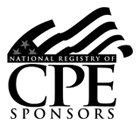
View Details/Register
View Details/Register



CPA - small firm
CPA - medium firm
CPA - large firm
The audit observation is the most essential part of an audit report. It is used to bring significant issues to the attention of management. How well you communicate that information is critical to influencing the readers and getting the results you are seeking. A well-written audit observation will capture the readers’ attention and focus them on the critical issues that need to be addressed. A well-written audit observation adds value to your clients by providing concise, understandable, and persuasive observations as well as actionable recommendations.
The key to writing an effective audit observation is having a comprehensive structured process. The Institute of Internal Auditors recommends a process known as the 5Cs:
- Criteria
- Condition
- Cause
- Consequences (Effect)
- Corrective Action (Recommendation)
As you develop conclusions, findings, and recommendations, you must present them to your client in a logical, complete, and objective way. This process provides an easy way to develop and present your observations consistently. The components of this process include all the information you will need to inform and persuade. Presenting your findings in this way enhances the chances of the client’s buy-in and agreement to your recommendations.
Learning Objectives:
- Define the basic principles for writing effective audit observations
- List the five components of an effective audit observation
- Give examples of each component of the recommended observation standards in detail

Jonnie Keith, CIA, CFE, CGAP
JonSherr Enterprises
Internal Audit Instructor
jonnietkeith@gmail.com
Mr. Keith has over 40 years of audit experience and served as the Chief Audit Executive for the Metropolitan Atlanta Rapid Transit Authority (MARTA) for 11 years before his retirement in 2012.
As the Chief Audit Executive for MARTA, he was responsible for administering the overall audit activities for the Department of Internal Audit.
He has been a volunteer seminar instructor for the Institute of Internal Auditors. He currently teaches audit webinars, including:
• Writing Effective Audit Observations
• Putting the Quality in Audit Reports
• What it Takes to be the Auditor-In-Charge
• Assessing Risk and Evaluating Controls
• What It Takes to be the Auditor-In-Charge
He has been published three times in the IIA Magazine’s “Back to Basics” section. He has a degree in Economics from Clark Atlanta University. His certifications include Certified Internal Auditor (CIA), Certified Fraud Examiner (CFE), and Certified Government Auditing Professional (CGAP).
- To receive CPE credit, you must register for the webinar before it starts.
- CPE is available to all eligible participants within 24 hours of each webinar.
- To receive CPE for multiple attendees, at least one person must sign up for the webinar. The post-webinar email contains a link to instructions for the proctor letter. Alternatively, you may log in to your account following the webinar and click on the MY ACCOUNT button to find a link to instructions. For paid courses, payment needs to be made for each attendee before credit will be issued.

NASBA Approved
CPAacademy.org (Sponsor Id#: 111889) is registered with the National Association of State Boards of Accountancy (NASBA) as a sponsor of continuing professional education on the National Registry of CPE Sponsors. State boards of accountancy have final authority on the acceptance of individual courses for CPE credit. Complaints regarding registered sponsors may be submitted to the National Registry of CPE Sponsors through its website: www.nasbaregistry.org.
CPAacademy.org 1685 S. Colorado Blvd, Suite #205, Denver, CO 80222
As the Chief Audit Executive for MARTA, he was responsible for administering the overall audit activities for the Department of Internal Audit including:
- Providing the Board, the GM/CEO, MARTA Management and appropriate government entities with independent analysis, appraisals, and recommendations concerning operational, information technology, contract compliance, and financial audits.
- Directing the day-to-day activities for three audit managers, 12 auditors and the audit coordinator.
- Developing and/or reviewing all audit reports and audit correspondence.
His other audit experience includes serving as:
- Operational Audit Manager at MARTA
- Senior Auditor in the Contract Compliance Audit Branch at MARTA
- Senior Auditor at Norfolk Southern Railway
- Bank Examiner at the Federal Reserve Bank of Atlanta.
He has been a volunteer seminar instructor for the Institute of Internal Auditors. Some of the courses taught included:
- Writing Effective Audit Reports
- Tools and Techniques for the Beginning Auditor
- Communication Skills for Auditors
- Leadership Skills for the Auditor-In-Charge
- Audit Project Management
- CIA Review Course
He currently teaches audit webinars, including:
- Writing Effective Audit Observations
- Putting the Quality in Audit Reports
- What it Takes to be the Auditor-In-ChargeAssessing Risk and Evaluating Controls
- What It Takes to be the Auditor-In-Charge
He has a degree in Economics from Clark Atlanta University. His certifications include Certified Internal Auditor (CIA), Certified Fraud Examiner (CFE), and Certified Government Auditing Professional (CGAP).


